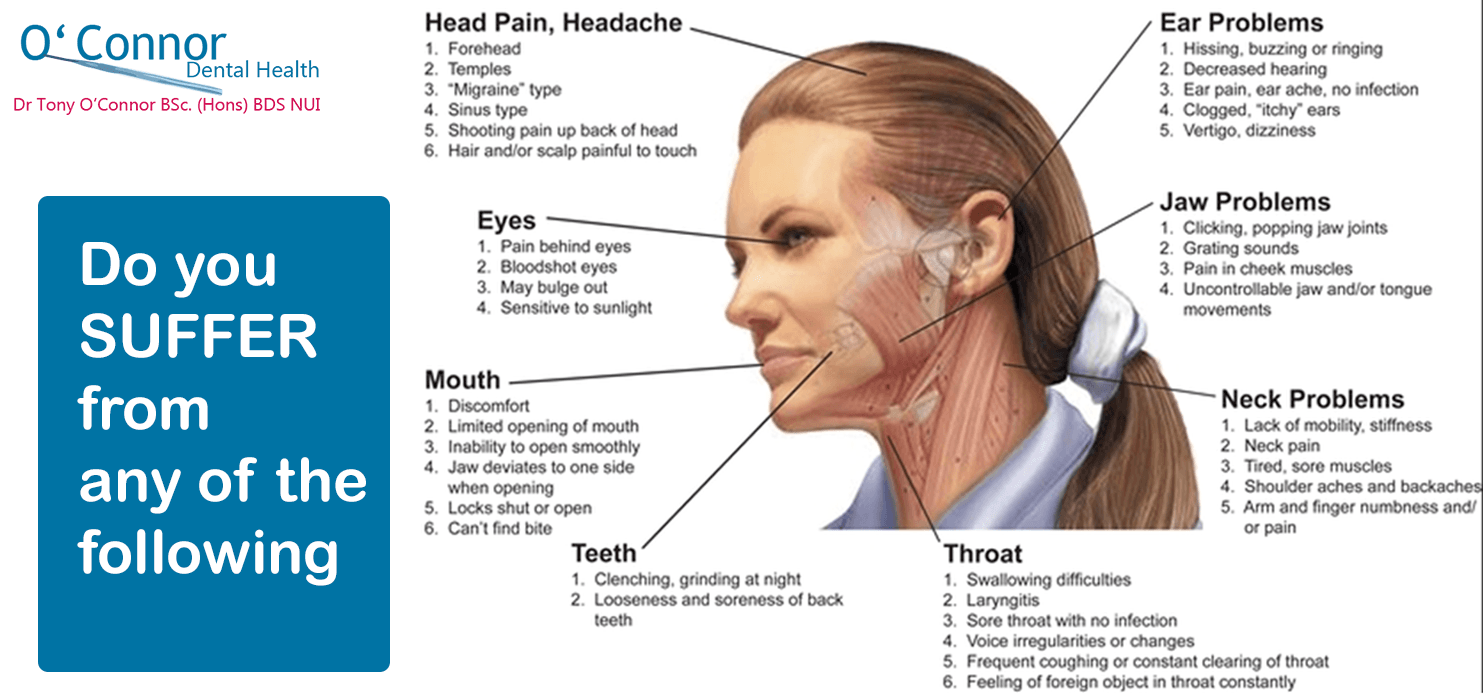- Speech issues; delay and or lisp
- Sleep apnea, snoring, night terrors, nightmares, sleep walking, or sleep talking
- Swollen tonsils and adenoids – chronic sinus issues and throat problems
- Behavioral issues, meltdowns, and ADHD-like symptoms; including ADD/ODD/OCD
- Migraines and Headaches
- Digestive Issues; constipation, reflux & IBS
- Choking, vomiting, or gagging on food or liquids
- Drooling
- Food falling out of the mouth, using fingers to move food in the mouth, pocketing food in the cheeks, or food getting trapped in gums, palate, or cheeks
- Picky eating; food and texture aversions
- Jaw issues, TMJ, or grinding teeth
- Recessed jaw/chin
- Malocclusions (overbite, underbite, open bite, overcrowding, crossbite, a gap between front teeth, or bottom teeth angled into an inverted V, etc) or crooked teeth requiring braces
- High palate
- “Clumsiness” or affected posture
- Bedwetting or issues with toilet training
- Chronic ear infections
- Chapped lips
- Dental & oral health issues: cavities, premature decay, and or bad breath
- Allergies/Eczema/Asthma
- Venous pooling beneath the eyes – dark circles beneath the eyes
- Changes in head posture – posturing the head forward and/or tipping the forehead backward
- Scoliosis and Torticollis
- Diagnosis of apraxia
- Chronic sinus infections
- Flat feet
- Deviated septum
- Sensory issues
- Anxiety or depression
- Trouble sleeping; waking up frequently
- Tiring easily while speaking or reading aloud/daytime drowsiness
- Insufficient development of the palate (narrow palate)
- Difficulty swallowing liquids, food, or pills
- Delayed or stunted growth
- Irritability/anger/aggression
- Difficulty in school (math, science, spelling)
- Car/motion sickness
- Often associated with Ehlers-Danlos syndrome
- Aversive to brushing teeth
WHAT IS SLEEP-DISORDERED BREATHING?
Can Tooth Extractions Cause Sleep Apnea?



